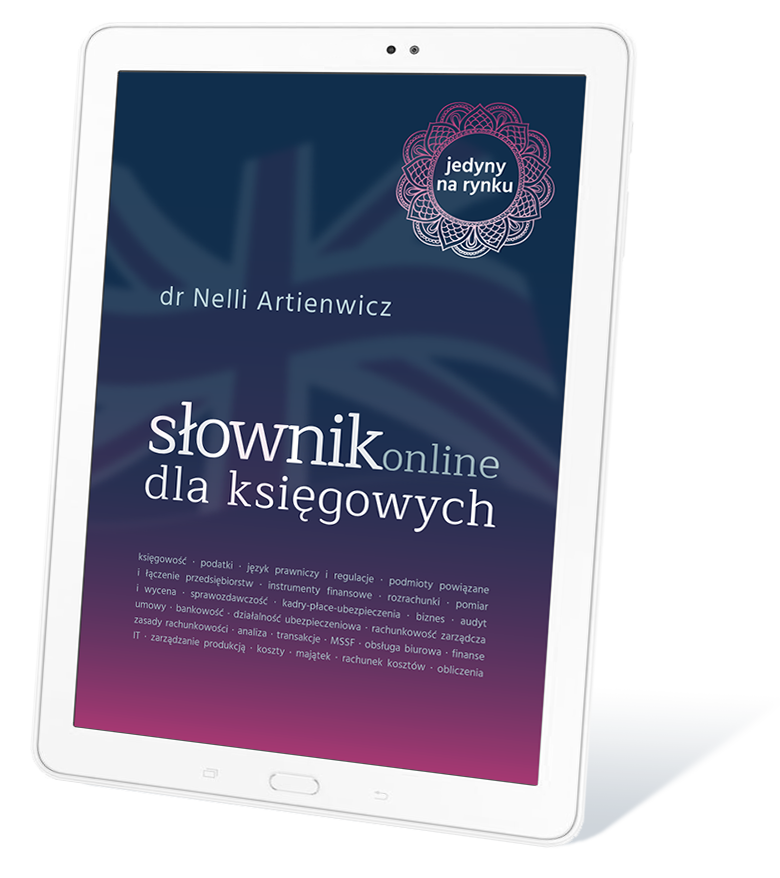Prawidłowe użycie ‘do’ i ‘make’ w połączeniu z rzeczownikami jest jednym z typowych zagadnień, które trzeba opanować w nauce języka angielskiego. Dotyczy to również księgowego angielskiego. Poniżej zestawienie wybranych wyrażeń z ‘do’ i ‘make’, które mogą się przydać w angielskim z zakresu księgowości i finansów. Pod każdym z wyrażeń znajdują się przykładowe zdania użycia.
Połączenia rzeczowników z ‘do’:
DO ACCOUNTING – może mieć dwa różne znaczenia. Pierwsze to PROWADZIĆ KSIĘGOWOŚĆ.
- He does accounting for my small business. He’s knowledgeable and quick, and has saved me thousands of dollars.
- They kept their customer lists on index cards, and I don’t want to think about how they did accounting.
Drugie znaczenie to – ROBIĆ STUDIA Z RACHUNKOWOŚCI
- Its seems more common currently among financial planners that they did accounting than finance. Others have also studied economics.
- Australian graduates have a very hard time unless they did Accounting.
DO AN ANALYSIS – PRZEPROWADZAĆ ANALIZĘ
- She does accounting and ledger analysis work for West Coast operations.
- They did an analysis of the accounting data and the results are essentially the same over the last 5 years.
DO AN AUDIT – PRZEPROWADZAĆ AUDYT
- She did an audit and discovered, to her dismay, that she was losing about $50,000 a year to internal theft.
- Was it really an audit or just someone saying they did an audit.
DO CALCULATIONS – WYKONYWAĆ OBLICZENIA
- Abacus counting: how to do calculations up to a billion.
- They have to hire professional accountants to do calculations, keep records and manage financial data.
DO INVOICING – WYSTAWIAĆ FAKTURY
- You can do invoicing using invoice templates but in order to look more professional you could use online invoicing software.
- Do you know how to do invoicing properly?
DO OVERTIME – ROBIĆ NADGODZINY, PRACOWAĆ W GODZINACH NADLICZBOWYCH
- Since there was a deadline we did overtime every night.
- You have done overtime so you are entitled to be paid for the additional work.
DO A TRIAL BALANCE – SPORZĄDZAĆ ZESTAWIENIE OBROTÓW I SALD
- We did a trial balance for the fiscal year end
- An error has occurred since the last time you did a trial balance.
DO TAX RETURNS – SPORZĄDZAĆ DEKLARACJE PODATKOWE
- Here on campus, our accounting students work under the supervision of professors in the ATA program, where they do tax returns for free.
- He worked at the Barryton CoOp and did tax returns for nearly 40 years.
Połączenia rzeczowników z ‘make’:
MAKE MONEY – ZARABIAĆ PIENIĄDZE
- How much money do you make as an accountant?
- If someone gives you a proposal to make money through a shortcut, stay away from him to save yourself from online scams.
MAKE A PROFIT – OSIĄGAĆ ZYSK
- The company made a profit of $111 billion in 2018
- These figures show whether your business has made a profit or a loss over that time period.
MAKE A LOSS – PONOSIĆ STRATĘ
- Looking at the Final Results, the company made a loss of £497,000
- The company made a loss of £1.2billion compared to a pre-tax profit of £343million last year.
MAKE AN OFFER – SKŁADAĆ OFERTĘ
- Once you have made an offer, you may be asked to pay an initial deposit as an expression of interest.
- Once you’ve been made an offer, you may have some freedom to negotiate the terms of your employment contract
MAKE A CONTRACT – ZAWRZEĆ UMOWĘ
- The XYZ Company has made a contract with the government to supply 1200 micro computers this year and 2500 next year.
- She has made a contract with ABC on behalf of the business by which she is employed.
MAKE A PAYMENT – ZAPŁACIĆ
- We’ll send the recipient an email to let them know that you have made a payment to them.
- Once you’ve successfully made a payment, you will receive a receipt and the payment will be applied to your account by the end of the next business day.
MAKE A BANK TRANSFER – ZROBIĆ PRZELEW BANKOWY
- Your bank may charge you a fee to make a bank transfer into our account.
- What is a fast and simple way to make a bank transfer to Kenya?
MAKE AN ENTRY – WPROWADZAĆ DO KSIĄG, REJESTROWAĆ
- The Company’s bookkeeper made an entry debiting Supplies Expense and crediting Supplies on Hand.
- Every time I made an entry I got the flag that the debits exceeded the credits or vice versa
MAKE A POSTING – ZAKSIĘGOWAĆ
- We will make a posting to the G/L.
- You can make a posting by using the keyboard shortcut Shift-Enter.
MAKE AN ERROR – POPEŁNIĆ BŁĄD
- A company made an error in recording the 2018 purchase of machinery.
- If the bank made an error on the bank statement, you need to notify the bank so that the bank can make a correcting entry.
MAKE ACCOUNTING ESTIMATES – DOKONYWAĆ SZACUNKÓW KSIĘGOWYCH
- The company has made accounting estimates relating to its impairment assessment of an intangible asset.
- Management must exercise judgment necessary to make accounting estimates that are appropriate in the circumstances of the applicable accounting framework.
MAKE A MATCH – DOPASOWAĆ
- It will scan available data in your account to attempt to make a match.
- Sometimes Xero won’t automatically make a match because the amount that came in from the bank combined two transactions in Xero
MAKE AN ADJUSTMENT – ROBIĆ KOREKTĘ
- When you make an adjustment to the inventory quantity, you must also make a corresponding adjustment to the cost of goods sold account.
- Why is it necessary to make an adjustment at the end of the accounting period for unpaid interest on a note payable?
MAKE ALLOWANCE FOR – TWORZYĆ ODPIS NA
- They made allowance for depreciation at 20% per year on motor vehicles.
- The company makes allowance for doubtful accounts at 10% of accounts receivable.

Potrzebujesz prawidłowych i sprawdzonych zwrotów do komunikacji z zakresu księgowego angielskiego?
Skorzystaj z dostępu do jedynego na rynku profesjonalnego słownika on-line rachunkowości angielsko-polskiego i polsko-angielskiego
stworzonego specjalnie dla księgowych!

